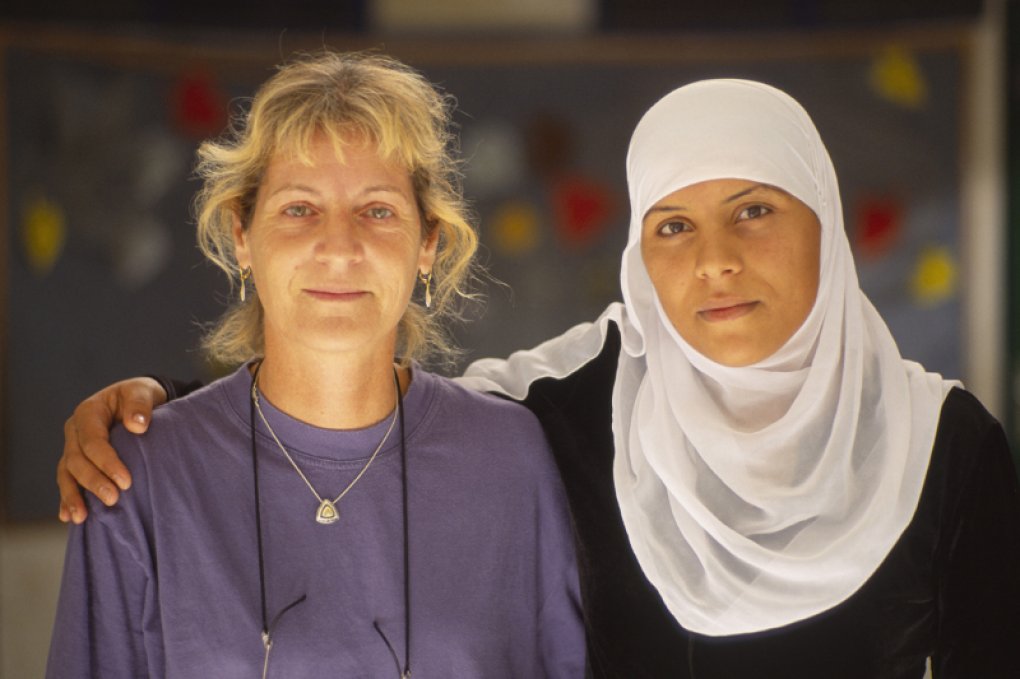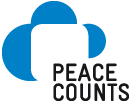A Peace Summit for the Civil Society
For the first time some 30 peacemakers from around the world will gather in Berlin to discuss the role of civil society in the next year. Common to them is that they come from conflict regions, belong to the most outstanding personalities in their field and have proven to work successfully with their organizations on the peace process in their country. The objective of the “Global Peacebuilder Summit” is to strengthen these key actors in their commitment, to make their work better known to the broad public, and to facilitate the networking between them.
The Global Peace Builder Summit is organized by the Culture Counts Foundation in cooperation with the Federal Foreign Office, which also funds the summit. Other partners are Helga Breuninger Stiftung, Berghof Foundation, Ashoka and the network “der kongress tanzt”.
The situation in crisis and post-conflict regions often changes quickly and dramatically. Therefore it is important to regularly seek the expertise of those who work in peace processes on site. Hot topics of the summit will be: How can civil society work more effectively? What are limits of civic engagement? What form of intervention and support desire peacemakers from the international community? How can a state like Germany get involved without weakening the own strengths of a society?
These topics do not leave us indifferent. From successful peacemakers we can learn how to resolve conflicts in our own society, as they show up for example with the refugee issue. The wave of asylum seekers and migrants is in a drastic way, how much affect us the consequences of violence and war.
Typical participants of the summit are those peacemakers who portrayed the project Peace Counts for twelve years. Here are some examples:
- Pastor Dr. James Wuye und Imam Muhammed Ashafa, Nigeria: Once known as militia leaders and archenemies, after their personal reconciliation they have jointly set up the Interfaith Mediation Centre in Kaduna. In particularly conflictive Nigerian “Middle Belt” they establish early warning systems against religious violence. They engage leaders of both religions in nonviolent conflict resolution, use massmedia for peace education.
- Dishani Jayaweera, Sri Lanka: For long years suffering from one of the bloodiest civil wars worldwide, Dishani Jayaweera brings together young people from different ethnic and religious groups. They photograph their own environment and share the photos with members of the other communities. The universal language of pictures connects the young people and allows dialogues about a peaceful future of the island. The organization CPBR directed by Dishani, also connects religious leaders - Tamils, Sinhalese and Muslims -, and has shown that tolerance and understanding between them is possible.
- A Peace Summit for the Civil Society
- Nava Sonnenschein, Israel: She is the head of the School for Peace in the Jewish-Arab village of Neve Shalom / Wahat al-Salam. There she has developed a special method for encounters between young Palestinians and Israelis, which is not based on personal sympathy, but focusses in critical, supervised dialogues on the group conflict and its profound causes and consequences. This methodology has since been adopted in other conflict zones around the world.
- Babloo Loitongbam, Manipur: The lawyer and founder of the organization Human Rights Alert is committed to the observance of human rights in the eight states of Northeast India. There applies a special act, which gives the army the right of “shoot to kill” – solely on suspicion of terrorist activities. The organization has proven in 1528 cases that innocent people were killed, and helped to curb the extrajudicial violence decisively.
The Global Peace Builder Summit sees itself as a learning organization that collects evidence on effective engagement of civil society and is dedicated to develop it further at summits at regular intervals. The first will take place in September 2016 partly near Potsdam, partly in Berlin. For questions please contact the coordinator Michael Gleich: [email protected].


